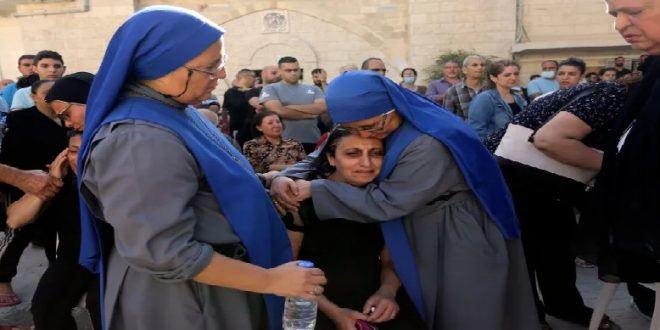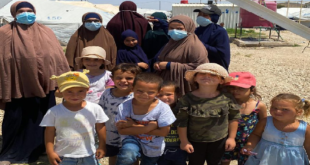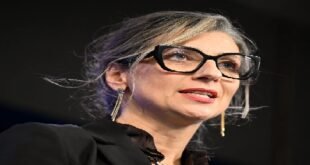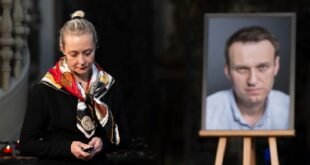10-11-2024
GAZA STRIP: When Khalil Sayegh thinks back to his childhood in the Gaza Strip, the Greek Orthodox Church of Saint Porphyrius looms large in his memory.
Sayegh, now 29, remembers the weddings, the Sunday school classes, the music lessons and the visits to the tiny graveyard.
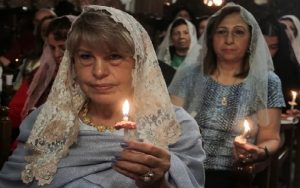 These days, Sayegh lives in Washington, DC, where former President Donald Trump will retake power in January after beating Democrat Vice President Kamala Harris in the United States presidential election this week.
These days, Sayegh lives in Washington, DC, where former President Donald Trump will retake power in January after beating Democrat Vice President Kamala Harris in the United States presidential election this week.
Trump’s political comeback has added a new layer of uncertainty for Palestinians not just those inside Gaza, which Israel has subjected to near-relentless bombardment and ground assaults for the past 13 months but also those who, like Sayegh, have family there and are watching helplessly from afar.
They have been deeply angered by the current Democratic Party administration’s failure to hold Israel to account for a war which has resulted in the deaths of more than 43,391 Palestinians and thousands more who are missing and presumed dead under the rubble. More than 100,000 people have been injured and nearly all the enclave’s population of 2.3 million are displaced.
As president of Israel’s mightiest ally, Joe Biden has persisted with his unwavering support for the country, refusing to halt military aid, and Kamala Harris has not strayed from this position.
Many Arab Americans felt compelled to wash their hands of the Democrats in this election and voted instead for the Green Party candidate, Jill Stein, who promised to obtain a ceasefire and halt arms aid and sales to Israel.
Sayegh’s homeland, which now lies largely in rubble and ruins, has been ravaged in the past year by this war, which has been largely funded by the US. Hundreds of thousands of homes have been destroyed while hospitals and schools have been targeted in Israeli strikes but Sayegh returns to memories of better times. A member of the Gaza Strip’s small but ancient Christian community, he recalls, particularly, the Divine Liturgy celebrated at St Porphyrius every Sunday, the lengthy, ancient rite blending chanting, incense and prayers in Arabic and ancient Greek.
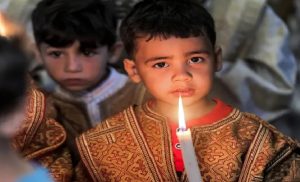 The church and surrounding compound, parts of which date back to the 5th century CE, was a hub for Gaza’s Christian community.
The church and surrounding compound, parts of which date back to the 5th century CE, was a hub for Gaza’s Christian community.
Today, much of it lies in ruins. In October last year, an Israeli air strike destroyed one of the buildings in the compound, killing at least 17 people.
About 400 Palestinians, both Christians and Muslims, had taken refuge there, in the hope that the church would be spared the devastating bombing being visited on the surrounding area.
The church was among a number that had opened their doors to Palestinians fleeing the air strikes, which began on October 7 last year.
On the other side of the city, the Catholic Parish of the Holy Family had also welcomed about 600 of them, among them Sayegh’s parents and two of his siblings.
In December, a few months after the family had arrived at the church, an IDF sniper killed two Christian women, a mother and daughter, as they walked from one building within the Holy Family compound to another. One was shot as she attempted to carry the other to safety.
Then, on December 21, a few days before Christmas, Sayegh’s father, Jeries traumatised by what he had seen suffered what appeared to be a heart attack, which eventually proved fatal. He was 68 years old.
“There was no medication left in the compound, and ambulances were not allowed in by the IDF,” Sayegh tells media. “If my father had been able to access medical care, he would still be here today.” (Int’l News Desk)
 Pressmediaofindia
Pressmediaofindia
